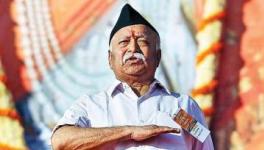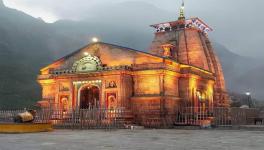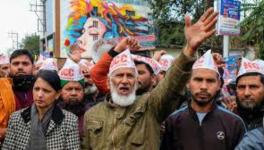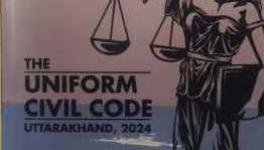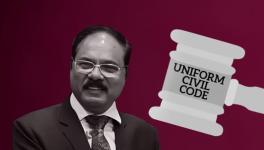Kerala: CPI(M) Seminar Calls for Defeat of Attack on Plurality through UCC
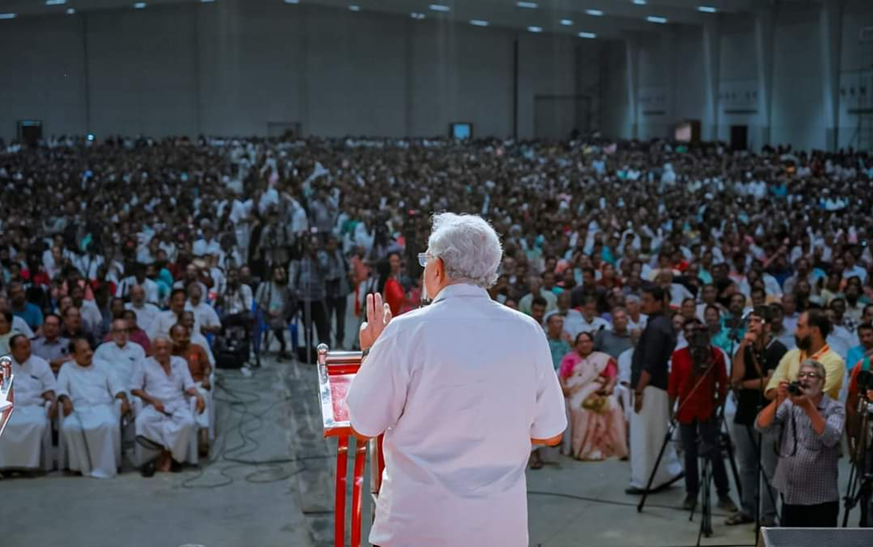
Sitaram Yechury inaugurated the seminar against the UCC (Courtesy: CPIM Kerala)
The seminar organised by the Communist Party of India (Marxist) (CPI(M)) in Kerala's Kozhikode accused the Bharatiya Janata Party (BJP) of using the Uniform Civil Code (UCC) as a tool to sharpen the religious polarisation for gains in the 2024 General elections.
The decision to examine the UCC, with under a year left for the elections, raised eyebrows, given the 21st law commission in 2018, after two years of consultations, recommended that UCC is 'neither necessary nor desirable.' The commission has invited opinions on the code till July 28, 2023, though no draft has been proposed yet.
Sitaram Yechury, the general secretary of the CPI(M), while inaugurating the seminar, charged the BJP and its leaders with polarising the society by targeting a particular community while promising to exempt tribals, Christians, parsis and Sikhs from the UCC. He clarified that the CPI(M) stands for protecting the plurality in the nation and called for recognition of differences like several other countries are doing.
Leaders from the constituent parties of the ruling Left Democratic Front (LDF), Adivasi Kshema Samithi, Kerala Pulayar Mahasabha, Christian and Muslim organisations, including the influential Samastha Kerala Jem-iyyathul Ulama participated in the seminar held on July 15.
'CAN NOT IMPOSE UNIFORM CODE'
The 22nd Law Commission invited 'views and ideas of the public at large and recognised religious organisations about the UCC'. The notification dated June 14, 2023, also included that the 21st law commission had invited views 'along with a questionnaire' but refrained from providing any such material for the public and institutions to express their opinions.
Referring to the recommendations of the 21st law commission and the consultations, which extended for around two years between 2016 and 2018, Yechury questioned why the Union government is pressing for the UCC.
Quoting from the recommendations, he said, "Most countries are moving towards recognising differences. The meagre existence of differences doesn't imply discrimination but indicates a robust democracy, and the CPI(M) endorses this."
Representing the Syro Malabar diocese, Joseph Kalarickal said that if the UCC is intended to end discrimination against women, then the first task is to reform the personnel laws and not UCC.
It can be recollected that despite being strong advocates of the abolition of triple talaq and even making it a criminal offence, the BJP and Sangh Parivar outfits vehemently opposed the entry of women into Sabarimala temple.
The vice president of Kerala Muslim Jamaat, Mohammed Faizi, called for creating awareness about people misinterpreting and misusing personal laws.
"The apprehensions are legitimate since the UCC would replace all personal laws in the country," he said.
'WILL ALL DIRECTIVE PRINCIPLES IMPOSED BY LAW?'
The BJP leaders have referred to the observations of Dr BR Ambedkar on the need for a UCC but have sidestepped the fact that such provisions are being placed in the Directive Principles of State Policy (DPSP). The directive principles are not enforceable through laws.
"Dr Ambedkar said this is an effort which has to be undertaken and achieved only through the cooperation of all sections of people and deep discussions. If the BJP would be ready to impose workers' participation in the management of industry as said in the DPSP?" Yechury asked.
He went on to add if the BJP government is prepared to ensure "the right of all men and women to an adequate means of livelihood, equal pay for equal work and within limits of its economic capacity and development, to make effective provision for securing the right to work, education and to public assistance in the event of unemployment, old age, sickness and disablement or other cases of undeserved want" as defined in the DPSP.
"Recognising the plurality, the Constitution has granted special conditions and status for regions through Article 371, Article 371 (a) to (j), fifth and sixth schedules of Article 244. Unity can be achieved by strengthening the bonds of commonality of diversity and not imposing uniformity," Yechury said.
TARGETING MUSLIM COMMUNITY
The BJP and Sangh Parivar organisations led by the Rashtriya Swayamsevak Sangh (RSS) had three primary agendas made public through their election campaigns, namely abolition of special status for Jammu and Kashmir (through Article 370), construction of Ram Temple and implementation of UCC, of which the first two have been achieved.
MV Govindan, the CPI(M) Kerala state secretary, accused the BJP of attempting to convert India into a Hindutva Rashtra and take the country backwards to form a Constitution based on the Varna system.
"We have seen the BJP government attempting to implement the CAA; several BJP-led state governments have Cow Protection Laws aimed at targeting the Muslims. Two of their three core communal agendas have been achieved. With reports of exemptions from UCC for tribal regions, Christians, Parsis and Sikhs, the target is the Muslims," Yechury added.
Accusing the BJP of shying away from pressing issues of price rice and unemployment, Yechury said, "These rabid attempts to create an intolerant fascistic hindutva rashtra must be defeated."
Get the latest reports & analysis with people's perspective on Protests, movements & deep analytical videos, discussions of the current affairs in your Telegram app. Subscribe to NewsClick's Telegram channel & get Real-Time updates on stories, as they get published on our website.













